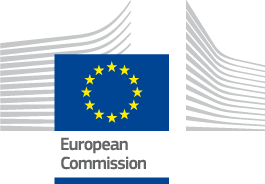Request > Post 2020 and transformative change
Contribute to the development of the EU post-2020 Biodiversity Strategy and the success of its implementation by, ensuring the policy relevance of the ALTER-Net conference
&
What can researchers offer to understand Transformative Change and translate it into actions, goals, targets and pathways for the Global Biodiversity Strategy to 2030?
Requester: ALTER-net and the European Commission’s Directorate-General for Research & Innovation (DG R&I)
Summary
Type of request: Societal Engagement and Support initiatives
This request aims to significantly contribute to the development of the EU post-2020 Biodiversity Strategy and the success of its implementation by engaging scientists, policy makers and society to 1) stimulate both the European Commission and the research community toward a robust and effective post-2020 EU Biodiversity Strategy and 2) develop an engagement strategy to create awareness and ownership from science, policy and society to implement it.
Reference: Request CfR.4/2019/1
From the previous initiative, and to further support the Global Biodiversity Strategy a second process started that aimed to promote transformative changes indispensable to achieve the objectives of CBD and other multilateral agreements, SDGs and the Paris agreement by focusing on what researchers can offer to understand Transformative Change and translate it into actions, goals, targets and pathways for the Global Biodiversity Strategy 2030.
Reference: Request CfR.4/2019/2
Expert Working Group
- Harriet Bulkeley (Durham University/Utrecht University) (Chair)
- Marcel Kok (PBL Netherlands Environmental Assessment Agency)(Chair)
- Jiska van Dijk (NINA & ALTER-Net) (Chair)
- Tim Forsyth (London School of Economics and Political Science)
- Sebastian Villasante (University Santiago de Compostela)
- Peter Goethals (Ghent University)
- Pieter Vullers (Stockholm Resilience Centre (Stockholm University) in collaboration with the Dutch Research Institute for Transitions (Erasmus University of Rotterdam))
- Gabriella Nagy (CEEweb for Biodiversity)
Contact points
- KCB Focal Point: Ute Jacob
- EMB Contact Point: Marie Vandewalle, Jorge Ventocilla and Karla E. Locher
Final outputs
CfR.4/2019/1
Request CfR.4/2019/2
CfR.4/2019/1
Key messages for the new EU Biodiversity Strategy, resulting from a multi-phased, iterative consultation survey among the networks’ scientists and other knowledge holders. It is a key outcome of the 2019 ALTER-Net/EKLIPSE conference ‘The EU Biodiversity Strategy Beyond 2020’ that addressed the contribution that research can make in helping to define the strategy targets. These messages included the following topics:
- European and global policies
- Reconnecting society and people with nature for improved recognition of the value of biodiversity and ecosystem services
- Decoupling economic development from the environmental degradation
- Core drivers of biodiversity loss and integration across sectors
- Monitoring and evaluation
- Research and knowledge-informed decision-making and implementation
- Biodiversity Strategy/ Climate change
- Incorporate regional/transnational processes and long-term temporal scales to enhance the success and efficiency of biodiversity.
- Participation and collaboration for ethical and sustainable decision-making
- Restoration and ecological functions
- Nature-based solutions (NbS) for sustainable development and nature conservation
- Specificity of freshwater biodiversity
For detailed information about the key messages, please check the final report (here)
CfR.4/2019/2
The EWG in the report identifies how transformative change can be made more tangible and illustrates how this might be done in practice to seize the opportunities for enabling action on the ground. The report seeks to identify how transformative change can be leveraged at the level of global governance. It argues that the post-2020 GBF is critical in creating the collective vision, ambition and momentum for transformative change, giving a direct mandate to Parties under the convention and providing an enabling and supportive framework for non-state actors who contribute to goals for biodiversity. We suggest that realising this potential will require identifying and embedding core principles for transformative change throughout the GBF. Besides, six principles are outlined based on the EGW digest of relevant research and positions on transformative change that needs to be embedded within the GBF. These principles can act as levers for achieving transformative change, generating new levels of ambition, enabling new agents of change to engage, and at the same time ensuring that action for biodiversity also enables just and sustainable outcomes for society
Six guiding principles for transformative change are outlined in the Eklipse background report are: address root causes, take multiple paths, expand the action arena, achieve diverse co-benefits, design deliberative and inclusive processes, and adopt proactive approaches to resistance.
For detailed information, please check the final report (here)
Impacts in Science
Gosselin, F., Galanaki, A., Vandewalle, M., Van Dijk, J., Varumo, L., Ventocilla, J., … & Young, J. (2020). MICESE: a new method used for the formulation of key messages from the scientific community for the EU post-2020 Biodiversity Strategy. Sustainability, 12(6), 2385.
Varumo, L., Yaneva, R., Koppel, T., Koskela, I. M., Garcia, M. C., Sozzo, S., … & Dictor, M. C. (2020). Perspectives on Citizen Engagement for the EU Post-2020 Biodiversity Strategy: An Empirical Study. Sustainability, 12(4), 1532.
Impacts in Policy
Report of the process submitted to the CBD Secretariat as an INF document for the GBF discussions.
In 2015, the European Commission’s Special Eurobarometer on “Attitudes of European towards Biodiversity” indicated that more than 80% of European citizens consider the various effects of biodiversity loss to be serious. More than 50% think they will be personally affected by biodiversity loss.
The current EU Biodiversity Strategy to 2020 will soon come to an end. Its aim is “to halt the loss of biodiversity and improve the state of Europe’s species, habitats, Ecosystems and the services they provide, while stepping up the EU’s contribution to averting global biodiversity loss” (EU Commission, 2011).
The mid-term review of the EU Biodiversity Strategy to 2020 by the EEA describes poor progress made in implementing the actions and achieving the six targets set out in the strategy. The report demonstrates that although actions on the ground, supported by adequate financing, can protect and restore nature and the benefits it provides, on a European scale we are unequivocally falling short on all but one of the targets. The IPBES assessments on the state of biodiversity and ecosystems in the European region, published in 2018, confirms the dire state of biodiversity and ecosystems in the EU, as well as the consequences for the economy and society.
After the failure to meet the 2010 target and now the negative prognostics to meet the 2020 target, the European Commission, the research community and all societal actors cannot afford another failure. Lessons must be learned from previous failures.
An increasing amount of literature is becoming available on how to bring transformative change into action, based on e.g. the IPBES Global Assessment, the Planetary Boundaries concept, and the “bending the curve of biodiversity loss” discussion.
Promoting transformative change, facilitating it and incorporating actions to achieve it into pathways, goals and targets of the post-2020 global biodiversity framework is key, but there is not enough discussion on how to achieve this. Whilst various elements are actively discussed, there is a gap in understanding how this could be concretely undertaken.
The objective of this request is to initiate a Science-Policy dialogue to bring together and engage scientists and policy makers in a transparent dialogue to recommend how to bring the post-2020 process forward on transformative change, taking up respective work of SBSTTA/the Open-Ended Working Group of the CBD (OEWG).
CfR.4/2019/1
Timeline
- Date request received: April 2019
- Call for Experts: February – March 2020
- Date of Experts selection: March 2020
- Date of the online EWG Kick-off meeting: March 2020
- Date of the first meeting with the requesters and EKLIPSE KCB and methods experts:
The work started in an open Horizon Scanning workshop in Peyresq. Here the process for collecting contributions and recommendations for the EU post-2020 Biodiversity Strategy was planned and initiated. Task forces have been set up to maximise this input, and a series of events and activities have been put into action.
Scoping phase
A call on other groups and initiatives working on the EU post-2020 Biodiversity Strategy to join forces to build a strong movement among the Biodiversity community to develop the EU post-2020 Biodiversity Strategy (Task Force “Movement”) was launched. This Call invited the scientific, policy and society communities to contribute to a series of events.
- The task force society at EKlipse planned different activities to reach out to societal actors, such as citizens, NGOs, businesses, etc., to gather their key messages regarding biodiversity and inspire and engage with them in dialogue about the environmental problems facing Europe.
- The task force “Scientific contribution” planned to gather and filter a collection of key messages for the post-2020 Biodiversity strategy from the scientific community.
- An International ALTER-Net & EKLIPSE conference in Ghent (17 – 19 June 2019) presented preliminary results and set up jointly the next steps.
Answering the request
Methods protocol
An EKLIPSE Call for Request dedicated to the EU post-2020 Biodiversity Strategy was launched on 18th March to approach decision makers linked to and interested in the process of the development of the EU post-2020 Biodiversity Strategy (DGs, CBD secretariat, government representatives, local/regional authorities, and other relevant stakeholders). This Call asked them to propose questions concerning biodiversity and ecosystem services beyond 2020 – their needs, obstacles, and problems in developing the post-2020 Biodiversity strategy. EKLIPSE translated the selected requests to “questions,” which became topics of sessions or part of a session. Science Key Messages contribute to the backbone of the conference. They were presented and discussed at different conference times: during plenary sessions, dedicated sessions, and other thematic sessions.
Finalisation
Papers collecting the movement results and the participatory approaches (scientific and societal inputs) have been written. Together with the International ALTER-Net and EKLIPSE conference, the science paper will be a scientific filter of the whole process: it will include state-of-the-art scientific knowledge for each key message. Should there be any key message in contradiction with current scientific knowledge, it would be removed.
The science paper is currently under revision.
CfR.4/2019/2
The objective of this process is to initiate a Science-Policy dialogue to bring together and engage scientists and policymakers in a transparent dialogue, to recommend how to bring the post-2020 process forward on transformative change, taking up respective work of SBSTTA/the Open-Ended Working Group of the CBD (OEWG).
Answering the request
Selection of an Expert Working Group
EKLIPSE sent out a Call for Experts (CfE.8/2020) inviting actors to join an Expert Working Group to answer the question: What can researchers offer to understand Transformative Change and translate it into actions goals, targets and pathways for the Global Biodiversity Strategy to 2030?
The EWG (see above) gathers 8 European experts and 3 Co-chairs.
Following a Call for Experts, selected candidates formed the Expert Working Group for this request, facilitated by Eklipse. The EWG developed a Background Document as the basis for an online workshop organised in June 2020 by the European Commission and the Croatian Presidency of the EU.
Before the workshop, the Background Document was submitted to an online consultation. A summary of the comments received can be found here.
Workshop and Finalisation process
Eklipse, together with Expertise France, Estelle Balian (FEAL), Karl Danskin (CollectivityNow) and Todd Erickson (Co-creative Consulting), has been involved in the design, preparation, facilitation, and technical platform for this workshop, which representatives from 50 countries attended to look at what is transformative change, how can biodiversity policy trigger transformative change, and how can this be translated into actions, goals, targets and pathways for the Global Biodiversity Strategy to 2030.
Wider online consultation on the workshop outcomes followed before the Final Report was submitted to the CBD Secretariat as an INF document for the GBF discussions.
To visit the page about this request by the European Commission, please click here.





